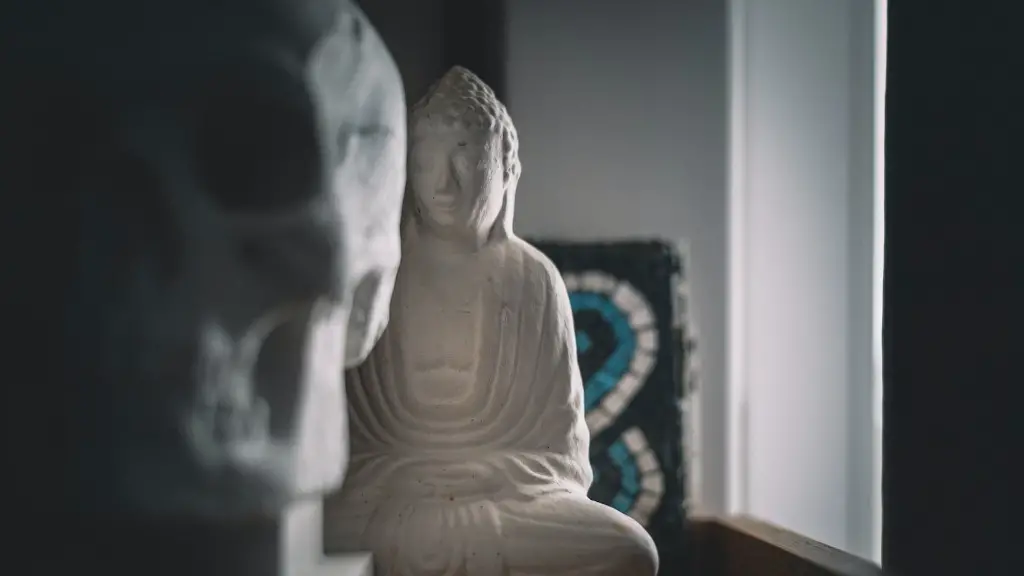What is Pesach in Judaism?
Pesach is one of the most significant Jewish holidays, celebrated as a commemoration of the Exodus from Egypt. Pesach is observed for eight days by religious Jews, and marks the beginning of the spring season. Though Pesach is a joyous holiday, it is also a deeply spiritual experience and one that is steeped in tradition. The period is generally considered to be a time of renewal and great spiritual significance within Judaism.
At the core of the Pesach experience is the Seder, which is the main ritual of the holiday. This is a detailed process involving the reading of the Haggadah, a sacred text outlining the key events in the story of the Exodus. This text is read by all present at the Seder, along with songs, blessings and blessings during the meal. Additionally, no leavened foods are allowed to be consumed during the Seder, and many people choose to avoid all leavened products during the entire holiday.
The holiday provides individuals with the opportunity to reflect on the history of the Jewish people, and to meditate on the importance of the story of the Exodus. This is done by engaging in certain rituals, such as eating matzah, a type of flat, unleavened bread. The symbolism of the matzah is important, as it signifies the flatbread that the Israelites “baked” in haste, as they were leaving Egypt. By eating the matzah, individuals are able to connect themselves with the past, and to think deeply about the struggles of their ancestors.
Pesach is also a time of celebration, as it is a reminder of the ultimate triumph of the Jewish people. After enduring 400 years of slavery, they were finally able to escape to freedom and to begin a new life. This holiday is a time for individuals to remember that no matter how overwhelming their current circumstances may be, there is still hope for a better future.
Pesach is a particularly important holiday within the Jewish faith, as it serves to strengthen the bonds among the Jewish people. This is done through the sharing of meals, blessings and stories, and by focusing on the core tenets of the faith. Additionally, this is a time when individuals are able to feel a strong connection to their religious heritage, which can be an important source of comfort, joy, and spiritual nourishment.
The Meaning of the Four Questions
During the Pesach Seder, four questions are asked by the youngest member of the family. The questions, known as the Four Questions, are intended to evoke the central themes of the holiday, namely why it is celebrated, what marks it out from other days, and why certain customs are observed. Answering these questions is an opportunity for individuals to reflect on the events of their past, and to more deeply appreciate the freedoms they have today.
Though there is no single explanation for the meaning of the Four Questions, many explanations exist. On one level, the questions are intended to provoke discussion among the participants of the Seder. This discussion gives individuals the chance to think about the story of the Exodus, particularly the suffering that the Jews endured in Egypt, and the miracles that took place during their deliverance. Additionally, the questions can be seen as a way of reminding individuals that no matter how comfortable life may be now, there were once trials and tribulations, and it is important to never forget this history.
Though the Four Questions are essential to the Pesach experience, they also have broader implications. This is because the questions do not merely deal with the past, but also encourage individuals to think about the future of Judaism. This can be seen in the way in which the questions encourage individuals to consider their own lives, and to think about how they can honor and uphold the tenets of their faith.
The Symbolism of the Seder Plate
The Seder plate is a vital part of the Pesach experience, and is used to symbolically represent the story of the Exodus. The plate is typically composed of a number of separate items, which serve to remind individuals of the core events in the story.
The most notable of these items is the zeroa, or shank bone, which symbolizes the Pesach sacrifice, or the offering made by Israelis just before their Exodus from Egypt. This is one of the most important components of the story, as it serves to remind individuals of their sacrifice and of the ultimate success of their journey. Additionally, the zeroa serves as a reminder to all present of the power of faith and of the resilience of the Jewish people.
Also present on the Seder plate are the maror and charoset, both of which are symbolic of the bitter and sweet experiences of life. Maror, which is typically horseradish or a similar vegetable, is a representation of the bitterness of the slavery endured in Egypt. Charoset, which is typically an apple-based mixture, is a reminder of the sweetness of freedom and salvation. Together, the maror and charoset serve to remind us of both the triumphs and tragedies of life, and of our ability to cope with whatever comes our way.
The Seder plate also contains potatoes, salt water, and other items, all of which serve to remind participants of the core themes of the Exodus story. Through the Seder plate, individuals are able to learn more about the story, undamned the sacrifices made by their ancestors, and gain a greater appreciation of their faith.
The Significance of the Name “Pesach”
The name “Pesach” comes from the Hebrew verb “pasach,” which means “to pass over.” This is an important concept in the story of the Exodus, as it refers to God’s decision to “pass over” the homes of the Israelites during the plague of the firstborn. This act of mercy spared the firstborn of Israelite families, and allowed them to escape the punishment of the Egyptians.
The name also signifies the idea that the Jewish people are “passed over,” in the sense that they have been safeguarded by God, and have been allowed to live in freedom and prosperity in the modern world. Additionally, the name “Pesach” serves as a reminder that even the most hopeless of situations can be overcome, if faith is strong enough.
The name “Pesach” is a reminder of the power of resilience, and is a testament to the strength and fortitude of the Jewish people. It serves to remind us that when faced with adversity, it is essential to keep going, and to never give up hope.
The Meaning and Tradition of Pesach in the Modern World
Though Pesach is a holiday that looks to the past, it is also a time to look to the future. This is done by building on the themes and traditions of the holiday, and by utilizing them in meaningful ways. For instance, many people use the occasion to share their experiences in dealing with injustice, and to discuss ways in which oppression can be combated. Additionally, some people focus on issues such as immigration, emphasizing the need to provide a safe haven for those in need.
The holiday is also a time for individuals to come together and celebrate the freedoms that they have, and to share in the joy of the holiday. This can be done by engaging in communal activities, such as singing and storytelling, or by participating in events such as the Seder.
Moreover, hosting or participating in a Seder is a way of honoring those who came before us, and of keeping their memory alive. By engaging in this tradition, individuals are able to not only gain a greater understanding of their own history, but also to experience the warmth and love of the community.
Pesach is a time for reflection and celebration, for honoring the past and for looking towards the future. Through engaging in the customs of the holiday, individuals can come to understand its importance, and can gain a greater appreciation of their faith and of their identity as Jews.
Dealing With Loss During Pesach
The story of the Exodus is one of struggle and perseverance, but it is also a story that deals with loss. This loss is not limited to the slavery in Egypt, but extends to all instances of suffering, including the loss of loved ones. Pesach provides individuals with the opportunity to honor and mourn those who have been lost, and to take comfort in the knowledge that, even after death, their memory will live on.
One of the ways in which individuals can honor those who have passed on is by lighting a candle at the Seder. This is an important tradition, as it serves to remind individuals that those who have been lost will never truly be forgotten. Additionally, it is a way of recognizing the pain of those who are left behind.
Another way of remembering those who have been lost is by engaging in Jewish customs and traditions. This can be done by performing rituals, attending synagogue services, and even by gathering together to celebrate Shabbat. All of these activities serve to remind us of the importance of those who have died, and of our duty to honor their memories.
Pesach is a time for celebrating the freedom of the Jewish people and for reaffirming their faith. Though there is joy in the holiday, it is also important to keep in mind that mourning and remembrance are an essential part of the experience. Honor and remembrance of those who have passed on helps to ensure that the legacy of the Exodus will never be forgotten.
The Messages Underlying Pesach
At the heart of the Pesach story is the message that freedom is possible, and that no matter how difficult the situation may be, we can always strive for a better future. This is an important reminder to all individuals of the power of resilience, and of the importance of striving for a better tomorrow.
Additionally, the story of the Exodus speaks to our ability to look to the past and learn from it. This is an important aspect of Pesach, as it reminds us to never forget the struggles of our ancestors, and to appreciate the freedoms that we have today. By understanding and learning from our past, we can make better decisions for our future, and create a better world for all.
Pesach is also a time for individuals to come together, to share in their traditions, and to celebrate their faith. This is done through activities such as the Seder and the Four Questions, and serves to remind individuals of the importance of tradition, and of the power of community.
The story of Pesach is one of hope and of resilience, and it serves to remind all of us that, no matter the circumstances, we can persevere, and that freedom and redemption are always possible.


